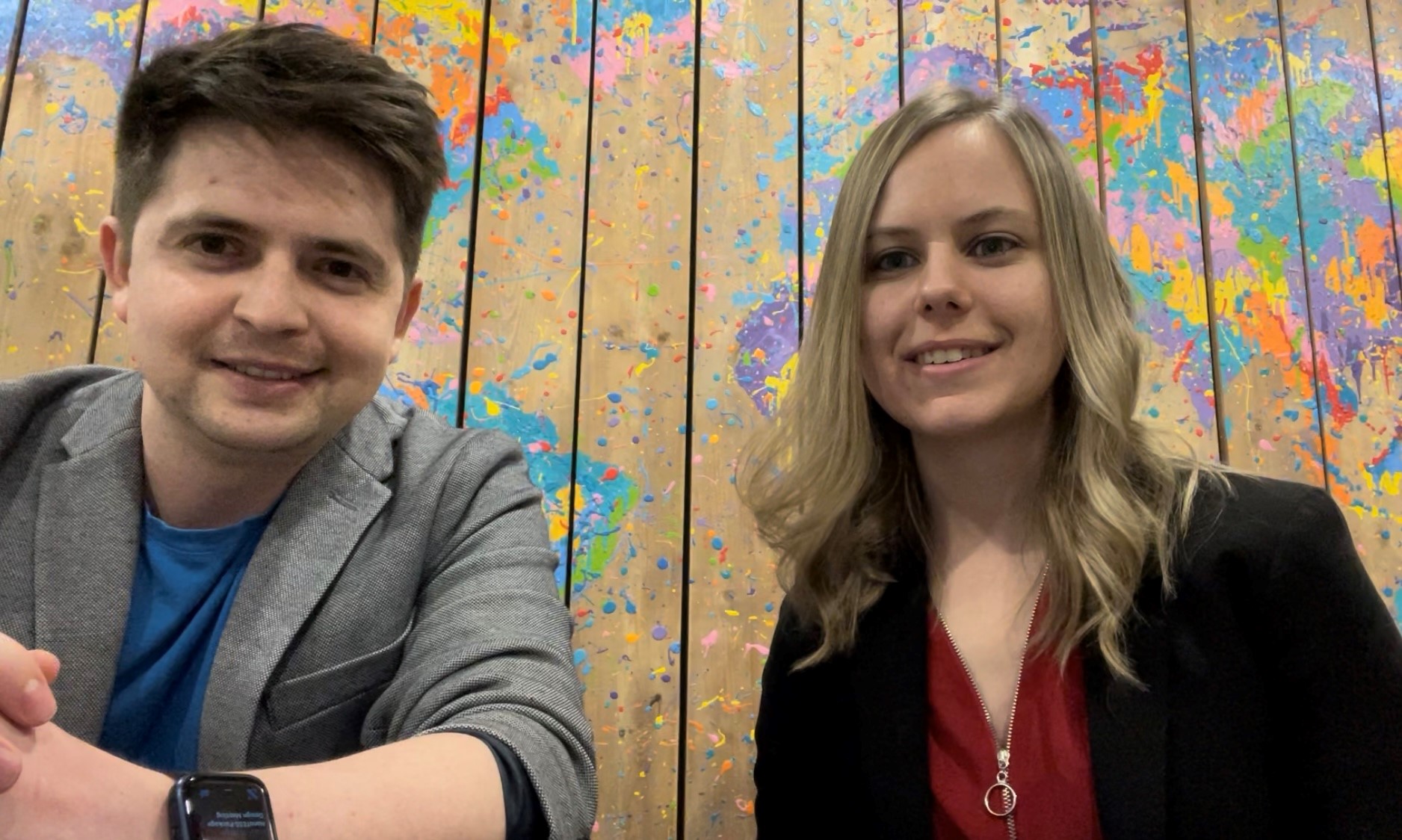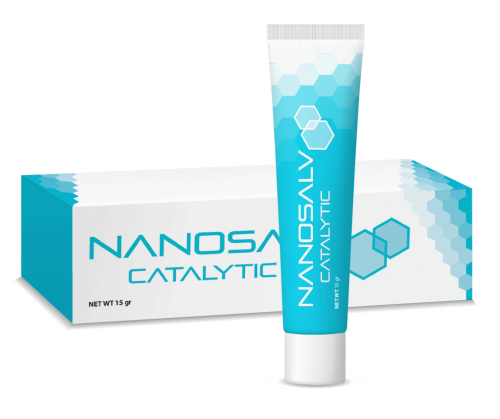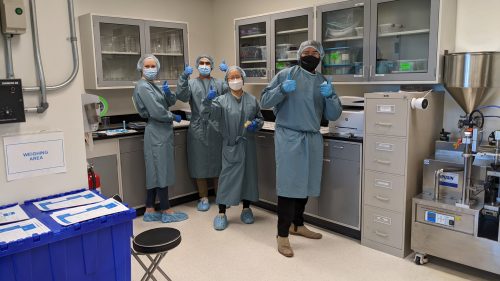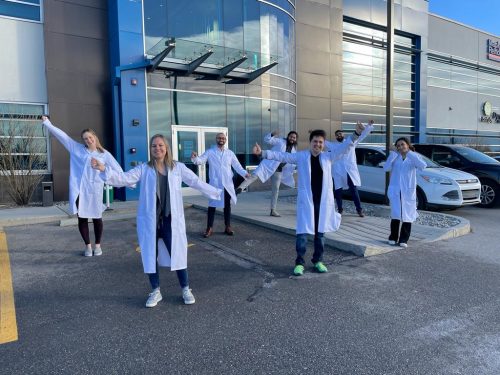In conversation with Praxis SCI Incubate Cohort Member, NanoTess

Accessible Advanced Wound Care with NanoTess
NanoTess is a company based out of Calgary, Alberta focused on nanotechnology innovation to develop affordable and accessible wound care products. They develop products that reduce the barriers for accessing medical solutions. For example, individuals living in remote or marginalized communities have limited access to the latest medical technology, which is often only available in larger urban hospitals. They are currently developing NanoSALV Catalytic, a low-cost advanced antimicrobial wound dressing designed to be applied without any specialized knowledge or equipment. This could help individuals manage chronic wounds including pressure injuries and diabetic foot ulcers that may result in non-healing ulcers or eventually lead to amputations, sepsis and potentially death. The product is small, versatile and easy to apply, allowing individuals living in remote or marginalized communities, who normally have limited access to the latest medical technology as it is centralized in urban hospitals, access to life-changing wound care.
Founded by partners Megan Leslie and Julian Mulia, NanoTess is a social enterprise and values-based business. We want our users to know that NanoTess is there for them throughout their wound care journey – that we are in it together. In the end, our aim is to play a role in combating the silent pandemic of diabetic foot ulcer amputations and stagnant, non-healing chronic wounds. This informs every aspect of our business, from product development, to company structure; the Praxis SCI Incubate program helped us focus on a patient-centric view of our product that helps us live up to our core ideals.
What was your biggest takeaway from the Praxis SCI Incubate Program?
We found that major changes were needed in the framework of our business in order to better engage users and keep them in mind throughout development and commercialization. We came into the program very focused on how to get our product to market; Praxis made us take a broader perspective and observe how our business can be better structured to work towards meeting the needs of our prospective users.
We gained an immense amount of direct and meaningful feedback from the SCI consumers and focus group on aspects of our product that we had not even contemplated. Until speaking to SCI consumers, many of whom have limited hand mobility, we had not identified that the packaging we had developed for the NanoSALV Catalytic gel was an accessibility barrier. By putting the product specs in front of our end users, we identified an important issue. With this information, we’ve changed the size of the product’s box to better accommodate the limited hand function in people with SCI and elderly populations.
“Our product is very near and dear to our hearts, and it was very useful for us to get an outside perspective on how it might be used.” Megan Leslie, CEO & C0-founder
What were the biggest changes to your company’s structure or business strategy arising out of the program?
Our way of thinking about our product, our company, our users – all of it shifted considerably thanks to our participation in the SCI Incubate program. Participation helped us challenge assumptions about how we thought our customers would use and interact with NanoSALV Catalytic. Originally, we had envisioned only two groups of consumers: clinicians and people who self-treat their wounds due to high frequency of wound occurrence. Through our weekly Clinical and Consumer team meetings, we identified sub-groups of consumers that we had overlooked—people with limited hand function in both spinal cord injury and elderly populations. These consumers wish to remain in control of their own care and also instruct their care providers on how to support this effectively. All health products they use must be not only accessible but also have clear instructions for anyone to use.
This patient-centred view is the biggest takeaway that we garnered from the program; we have moved forward with usability studies to ensure our product gets to market in a form that works for all users. Integrating patient-centred perspectives in our business is vital for the success at every stage in the commercialization journey of a novel medical technology.

Image: Product shot of NanoSALV Catalytic
How did the program change how you viewed challenges faced by your customers?
We found the external focus groups, where we were able to connect directly with members of the SCI community, to be incredibly useful. They allowed us to see our product and how it would be used through fresh eyes. Beyond that, the connections that we made through the program will be integral to the future development of our company.
Company Successes Due to the SCI Incubate program:
- Completed product formative usability study to gain insight directly from users.
- Expanded accessibility for complex wound care treatment to people with SCI.
- Improved usability for consumers by alterations to product packaging and instructions.

Image: NanoTess team in their lab
What did you get out of the SCI Incubate program?
We had hoped to engage in human-centered design elements to better position our product for success, and our expectations for this were far exceeded. Through the weekly Consumer & Clinician team meetings and focus groups we were able to learn so much about how our product meets the needs of people living with SCI. We also discovered avenues for widening its application and future product development that will benefit more populations with differentiated wounds . We had previously focused primarily on the needs of people with diabetic foot ulcers as our major market, but working with Praxis identified another substantial consumer market. NanoSALV Catalytic can treat pressure injuries, a chronic secondary complication for people living with SCI and elderly populations.
What would you say to companies thinking about participating in the program?
To anyone thinking about doing this program, just do it. It is an incredible program, and we can guarantee that there will be something that you learn or experience during the program that will help your company grow and develop. The flexibility of the SCI Incubate program, which is a unique feature that is unmatched in the healthcare space, allowed us to learn what we needed for where our company was in its growth phase. The quality of the speakers was unparalleled, each incredibly knowledgeable and informative. There were plenty of opportunities to learn from them through a rigorous question-and-answer period.

Image: NanoTess team
